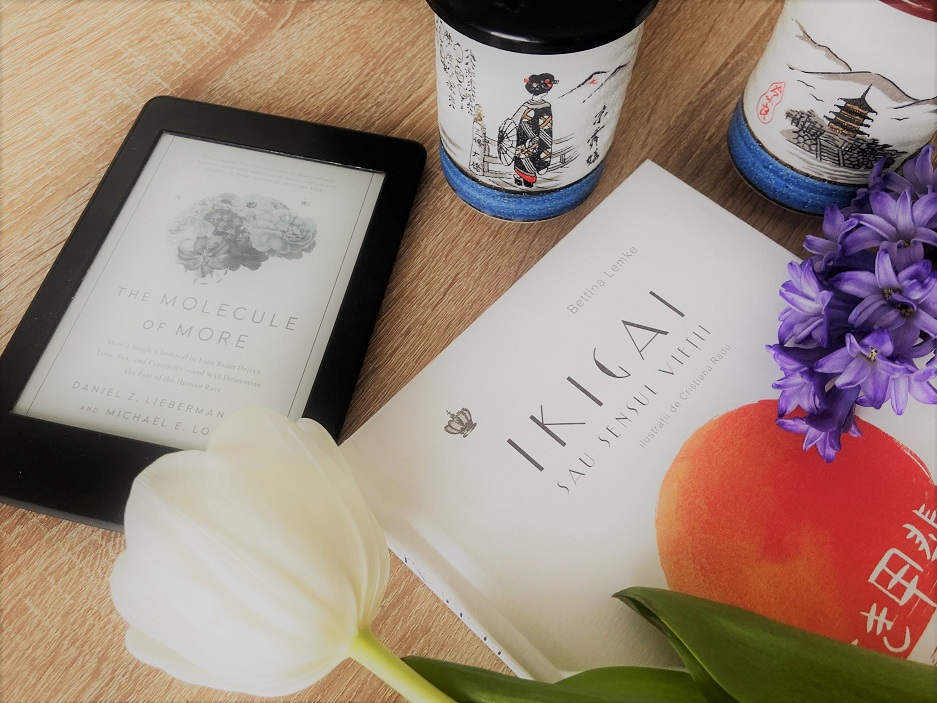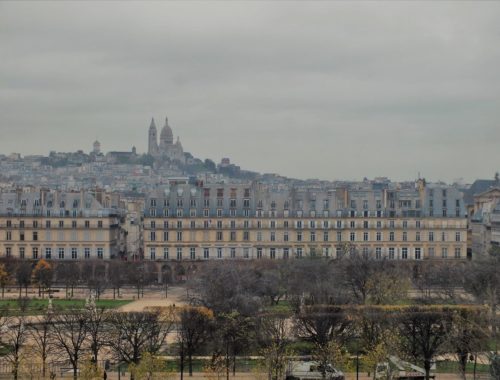
Dopamine and Ikigai

by The Flamingo
Dopamine – The molecule of more by Daniel Z. Lieberman and Michael E. Long and Ikigai by Bettina Lemke are the reads that caught my attention last spring. The first book tackles the enormous impact that the hormone of dopamine has on our daily life and in the grand scheme of things. The second speaks about the meaning of life, and the reason behind it, by introducing a Japanese concept of well being. While the former is a very pragmatic, evidence based book, the latter is philosophical and takes readers on a journey of self discovery. What do they have in common? They are both eye openers especially for people who don’t know themselves that well or those who are still searching for their path. Both books have the same goal: harmony.
Dopamine is the chemical in our brain that is associated with excitement, creativity, love, adventure, addiction and survival. It is explained how some people are more dopaminergic than others and how this influences behaviour, mindsets, strategies and decision making. People with a high level of dopamine tend to be led by it, regardless of the education and background they have. They look for the excitement of the new and always more, they change partners and jobs more often than the others, they are more creative and visionary than the average person, they are less empathetic, feel less guilt and they are prone to addiction and consumerism. It’s a personality based treat that is also genetic. “Dopamine has a very specific job: maximizing resources that will be available to us in the future; the pursuit of better things”.
The book also explains that dopamine is held in balance by another chemical circuit called the H&N, the circuit of emotions that is opposite from the dopamine. This circuit is based more on the “liking” part of the living and not the “wanting”. The normal emotions that we feel in day to day life are triggered here and it’s more connected to the present rather than the future.The balance between the dopamine and the H&N circuit “allows us to be humane towards each other, while safeguarding our own survival.” So basically our personality depends on this balance between these chemical circuits and determines who we are, of course taking into account our background and education.
The whole point of this book is to make the reader aware of what exactly drives them and why and how this balance and harmony can be achieved for their personal benefit. What I personally learned is that I am not a highly dopaminergic person, although I may have had some dopaminergic experiences in the past. My life in Switzerland has balanced me in that regard and I am more focused now on my present and on my feelings, enhancing my H&N circuits. Clearly the book is very eye opening and made me understand lots of things about myself and the people close to me.
Ikigai or the meaning of life is either meant to strengthen and validate the reader’s knowledge about themselves, or take them through a journey of self discovery. “Ikigai” is a Japanese concept that means that life has a meaning and each person has their private “something” worth living for.
The exact meaning of one’s ikigai is very simple. The next four questions have to have a similar answer:
- What do I love doing?
- What am I good at?
- What could I get paid for?
- What does the world need?
If the answer is the same, then the person knows their own personal path in life and found their ikigai, so they are prone to achieve harmony. The book has exercises for people to look inside themselves and find that meaning, if they haven’t already.
For myself it was a cool read that validated my ikigai and showed me I’m on the right path. This concept caught the attention of scientists and in time became known as “the essential key for a long, active and healthy life”.
My conclusion is, it’s not bad to read books about inner harmony now and then, they tend to ground me and help me be more mindful.
Photo from Flamingo‘s archive.




